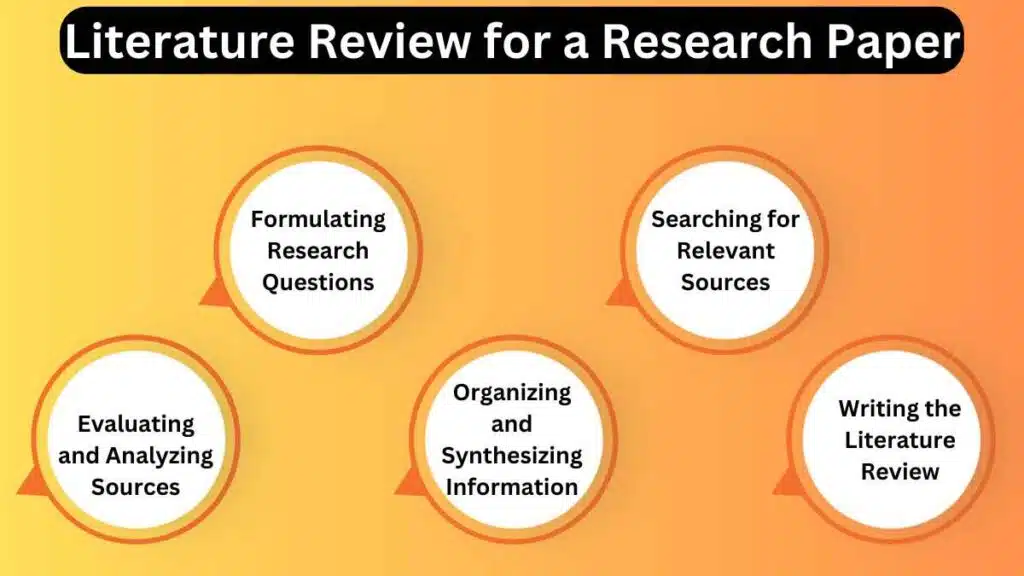Literature Review in Research Proposal- A Comprehensive Guide
Writing a research proposal involves several important elements. One of the crucial components is the literature review. A literature review provides a critical analysis of existing scholarly works related to the research topic. It helps researchers identify the current state of knowledge, highlight gaps in the literature, and establish the significance of their own research.
Literature Review in Research Methodology
A literature review is a comprehensive examination and evaluation of existing academic publications and other sources relevant to a particular research topic. Its purpose is to provide a summary, analysis, and synthesis of the available literature to establish the current knowledge on the subject and its relationship to the proposed research.
The literature review is a vital component of the research methodology. It helps researchers gain a deep understanding of the existing literature, identify key theories, concepts, and methodologies. It also determines the most appropriate research approach. The literature review guides researchers in refining their research questions and hypotheses and justifying the significance of their proposed study.
Literature Review Example for Research Proposal
Let’s consider an example to better understand how a literature review is structured within a research proposal. Suppose the research proposal aims to investigate the impact of social media on mental health among adolescents. The literature review in this proposal would involve reviewing existing studies on social media usage, mental health issues, and the relationship between the two.
Types of Literature Review
There are various types of literature reviews that can be used in research proposals. These include:
- Narrative or Traditional Literature Review: It provides a broad overview and summary of existing literature.
- Systematic Literature Review: It follows a well-defined methodology for searching, evaluating, and analyzing literature to answer specific research questions.
- Meta-analysis: It involves statistical analysis of data from multiple studies to draw conclusions.
- Scoping Review: It aims to map the existing literature on a broad topic area and identify research gaps.
How to Write a Literature Review for a Research Paper?
Writing an effective literature review requires a systematic approach. Here are the key steps involved:

Formulating Research Questions
Clearly define the research questions or objectives that your literature review aims to address. This will guide your search for relevant sources and help you focus on specific aspects of the topic.
Searching for Relevant Sources
Conduct a comprehensive search using databases, academic journals, books, and other relevant sources. Use keywords and search terms related to your research topic to retrieve the most relevant literature.
Evaluating and Analyzing Sources
Critically evaluate the selected sources based on their relevance, credibility, and reliability. Analyze the main arguments, methodologies, and findings of each source to extract valuable information.
Organizing and Synthesizing Information
Organize the information gathered from different sources based on themes, concepts, or methodologies. Identify commonalities, differences, and gaps in the literature. Synthesize the information to present a cohesive narrative.
Writing the Literature Review
Begin your literature review with an introduction that sets the context and explains the purpose. Develop the body paragraphs by discussing key findings, theories, and concepts from the literature. Include critical analysis and provide evidence to support your arguments. Finally, conclude the literature review by summarizing the main points and emphasizing the research gaps.
Purpose of a Literature Review in Research
The literature review serves several important purposes in a research proposal:
- Demonstrates familiarity with the research topic and the existing body of knowledge.
- Identifies research gaps and unanswered questions.
- Establishes the significance and relevance of the proposed research.
- Provides a theoretical framework and conceptual basis for the study.
- Guides the selection of appropriate research methods and approaches.
Related FAQs
How do you write a literature review for a research proposal?
Search for relevant literature.
Evaluate sources.
Identify themes, debates, and gaps.
Outline the structure.
Write your literature review.
What is meant by literary review in a research proposal?
In a research proposal, a literary review refers to a comprehensive evaluation and analysis of existing scholarly works and literature relevant to the research topic.
What is the role of the literature review in the project proposal?
The role of a literature review in a project proposal is to provide a critical overview of existing research and knowledge related to the project’s subject.
What is the format of a literature review?
The format of a literature review typically includes an introduction, a body section presenting the reviewed literature, and a conclusion. It follows a systematic and logical structure, highlighting key themes, theories, methodologies, and findings from previous studies.



Leave a Reply